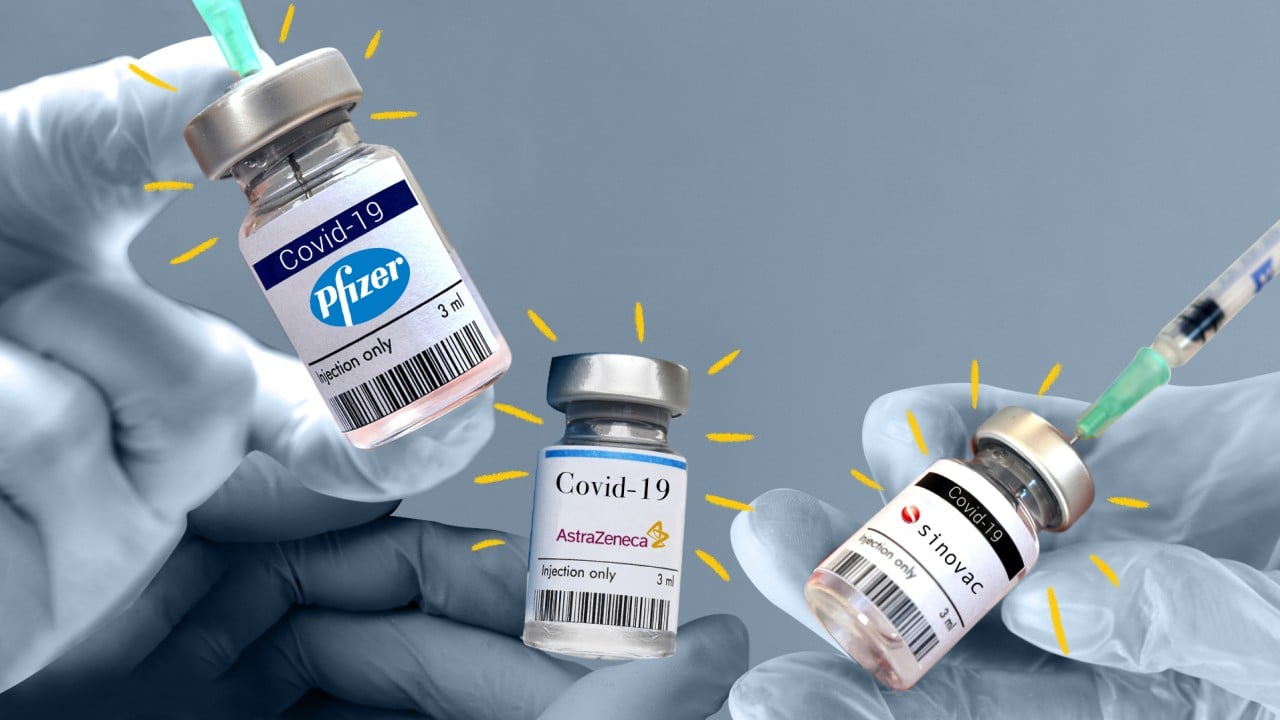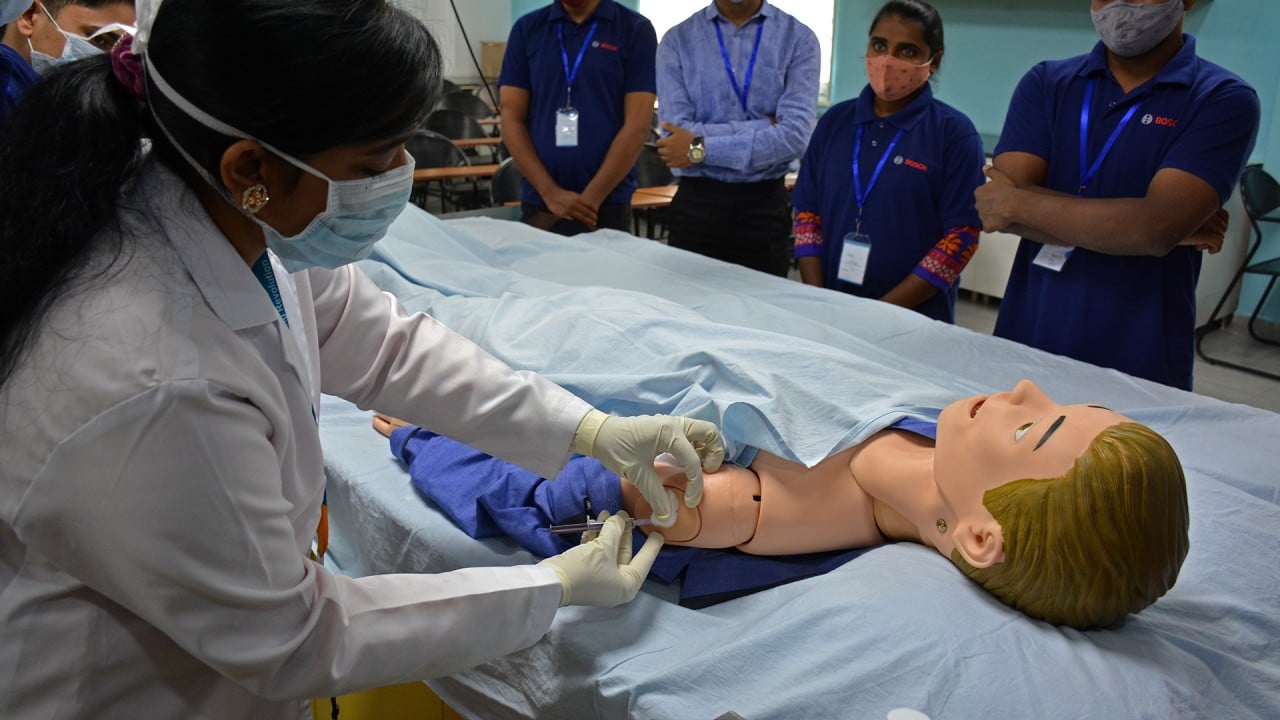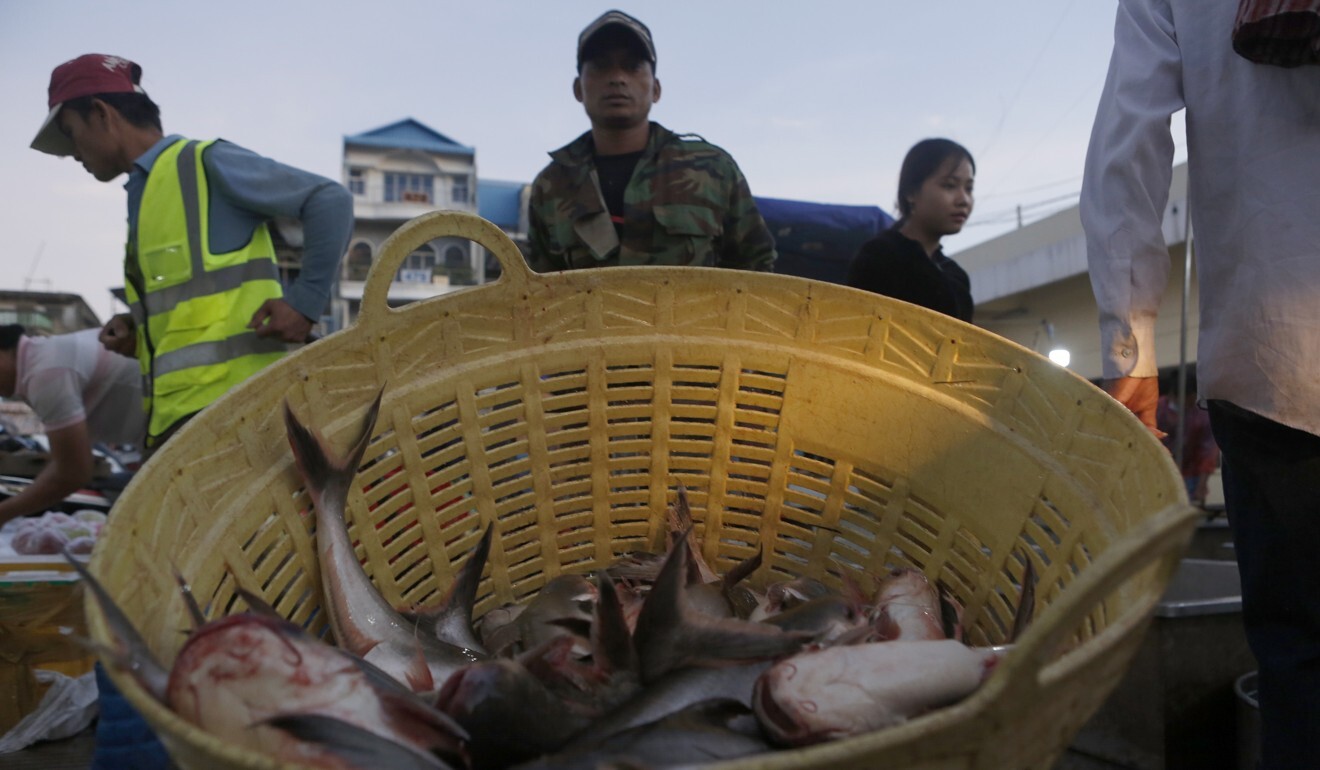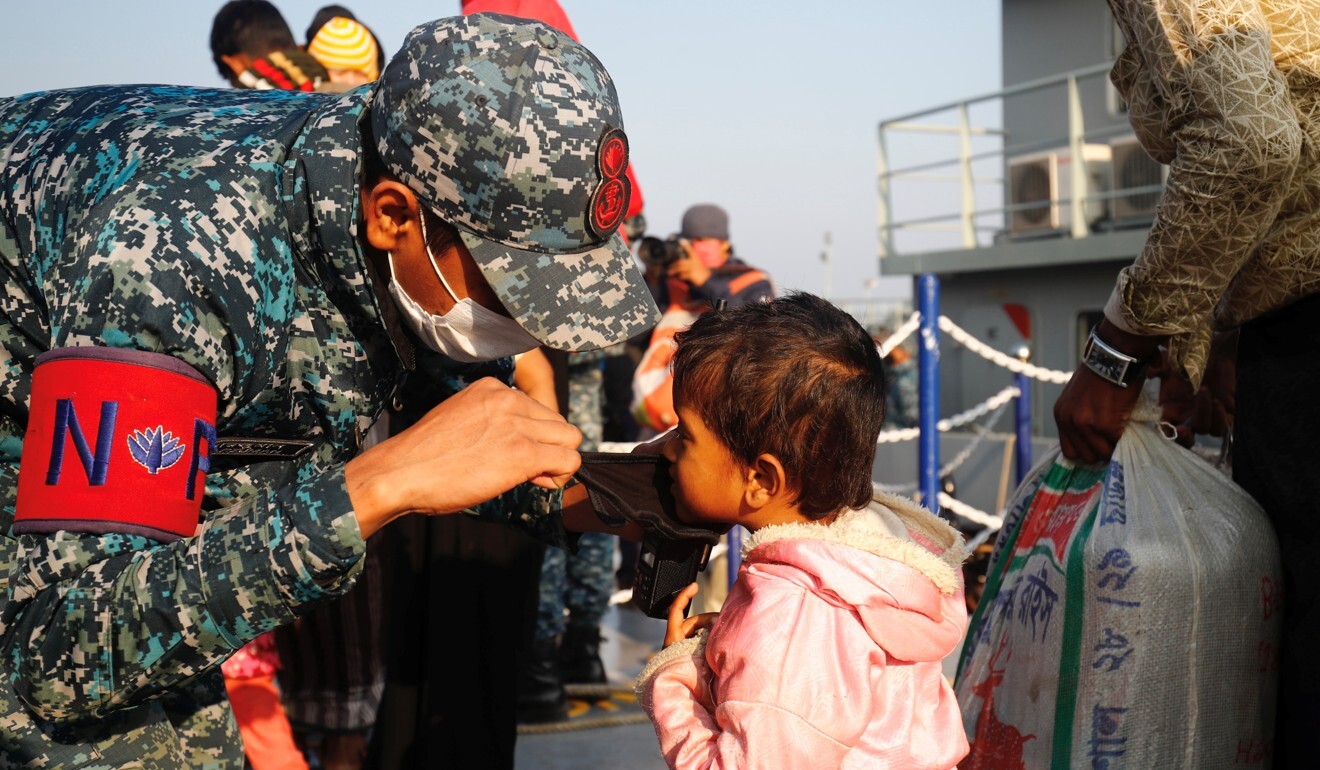
Coronavirus: Japan expands state of emergency; New Zealand tightens travel restrictions
- Japan has expanded a state of emergency to include Osaka, Kyoto and Hyogo as Covid-19 cases spike
- Meanwhile, New Zealand will ask visitors for negative tests before flying in, and China’s Wang Yi has vowed to send vaccines to Myanmar
Suga on Sunday said the three prefectures were “in a tense situation” and that the government was “ready to respond immediately if necessary”.
A state of emergency last Friday took effect for Tokyo and the neighbouring prefectures of Chiba, Kanagawa and Saitama, which are battling a new wave of infections.
‘Sugalin’: What is behind Japan PM’s new nickname?
More than 4,800 daily infections were reported nationwide on Monday, after topping 6,000 on Sunday. The recent resurgence of infections has been increasing the strain on the country’s medical system.
In Tokyo, the metropolitan government reported an additional 1,219 coronavirus cases, continuing to mark a four-digit increase since January 5. The latest figure brought the cumulative total in the capital to 76,163, while the number of patients currently hospitalised with severe conditions rose to a record 131.
In Osaka, daily infections reached 480, according to local authorities. Hyogo, whose capital is Kobe, and Kyoto marked increases of 150 and 142, respectively.
By declaring a state of emergency based on a law to address the spread of the virus, the central government enables local authorities to urge people to stay at home as much as possible and to call on eateries to shorten opening hours.

New Zealand to ask travellers for negative test
The government of New Zealand will ask international travellers from most countries to show negative coronavirus test results before boarding flights to the country as new contagious variants of Covid-19 spread across globally.
“Given the high rates of infection in many countries and evidence of the global spread of more transmissible variants, it’s clear that most global air routes will be of critical concern for the foreseeable future,” Covid-19 Response Minister Chris Hipkins said in a statement.
Hipkins said the pre-departure test requirement would soon expand to all countries and territories excluding Australia, Antarctica and some Pacific Island nations.
Pacific Islands look to US, Australia, NZ for Covid-19 vaccines
Travellers would still have to complete the 14-day mandatory quarantine and undergo testing upon arrival in New Zealand.
Border closure and a strict national lockdown during the initial phase of the pandemic has helped New Zealand keep numbers relatively low, with just over 1,800 confirmed cases and 25 deaths since the pandemic began.
The country last reported a local case nearly two months ago.
The government said it had secured enough vaccines to inoculate all of the country’s 5 million people, with agreements signed with pharmaceutical companies AstraZeneca and Novavax.
It plans to inoculate border workers by the end of March and the general public by midyear.

09:50
SCMP Explains: What's the difference between the major Covid-19 vaccines?
China’s Wang Yi says Myanmar will get 300,000 vaccine doses
China’s Foreign Minister Wang Yi discussed closer cooperation with Myanmar and promised vaccines against Covid-19, state-run television said on Monday, after he arrived on the first stop of a five-day tour of Southeast Asia.
Wang met President Win Myint and Aung San Suu Kyi, the de facto head of the government whose National League for Democracy (NLD) was returned to power in November with a second successive landslide election victory.
Wang is expected to meet army chief Min Aung Hlaing in the capital Naypyidaw on Tuesday before moving on to Indonesia, Brunei and the Philippines.
Philippines looks to start Covid-19 vaccine drive with Sinovac doses
Wang and Myanmar officials discussed border security, regional cooperation and China’s roles in brokering peace in Myanmar and in the potential repatriation of Rohingya refugees, Myanmar Radio and Television (MRTV) said.
Wang also promised Myanmar 300,000 doses of a Chinese vaccine against the novel coronavirus.
China is the second largest investor in Myanmar and wants to speed up mega-projects launched under its Belt and Road Initiative.
Beijing plays a crucial role in peace negotiations between Myanmar’s army and ethnic armed groups based along the border.
It has also sought to speed up the return of Muslim Rohingya refugees from camps in Bangladesh, and has shielded its neighbour from accusations at the United Nations that it committed genocide against the Muslim minority.

02:15
India trains workers to handle Covid-19 mass vaccination programme
India panel says Russia’s Sputnik V vaccine found safe in mid-stage trial
An independent board in India says it has found Russia’s Sputnik V Covid-19 vaccine safe in a mid-stage trial and recommended progressing to late-stage trials, Indian drug maker Dr Reddy’s Laboratories said on Monday.
Last September, Dr Reddy’s and the Russian Direct Investment Fund (RDIF) entered into a partnership covering clinical trials of the Sputnik V vaccine and the rights for its distribution in India.
The mid-stage trial safety data has been submitted to India’s drug regulator for review and approval to conduct late-stage trials, Dr Reddy’s said in a regulatory filing.
India’s Hetero Biopharma has already announced a deal with the RDIF to make more than 100 million doses of Sputnik V, whose efficacy has been found to be more than 91 per cent in trials done outside India.
In India, political row erupts over home-grown Covid-19 vaccine
Outside Russia, where authorities say over 1 million people have now been inoculated with the Sputnik V vaccine, which has been approved for emergency use by regulators in Algeria, Argentina, Bolivia, Serbia and in the Palestinian self-ruled territory.
India on Monday also signed a purchase order with vaccine producer Serum Institute to procure AstraZeneca’s Covid-19 vaccine, a source said, in the first step toward joining one of the world’s largest vaccination programmes against the novel coronavirus.
India’s drug regulator has given emergency use approval to vaccines from AstraZeneca and Bharat Biotech.
In addition to Sputnik V, Zydus Cadila’s ZyCoV-D vaccine is also undergoing trials in India.
India aims to secure 600 million doses of vaccine to inoculate 300 million citizens over the next six to eight months. The programme is expected to begin on January 16.

Cambodia on alert as Covid cases from Thailand creep up
Authorities in Cambodia remain on alert as Covid-19 cases from Thailand continue to climb among returning migrant workers.
The most recent was identified as a woman who arrived home from the country’s northern neighbour on Friday. The woman is among at least 12,000 migrant workers that have returned to Cambodia since December 20, a Health Ministry spokesperson told local newspaper the Khmer Times on Monday.
Why Cambodia won’t take China’s Covid-19 vaccines, for now
A government spokesperson said authorities had stepped up screening of arrivals as Thailand battles a coronavirus surge of more than 200 new cases per day.
Thai authorities say that at least 157 Cambodian workers have tested positive for the virus.
The busy Thai-run border-side Rong Kluea market, normally accessible from both countries, was last week shut until further notice amid the outbreak.
In late December, Cambodian Prime Minister Hun Sen ordered additional military units to support staff at border checkpoints but told migrant workers to “stay calm” and trust Thai authorities.

Bangladesh to inoculate residents next month
Bangladesh will begin inoculating people against Covid-19 in the first week of February as it hopes to get the vaccine by end of this month, a senior health ministry official said on Monday.
The South Asian country of more than 160 million in November signed a deal with the Serum Institute of India to buy 30 million doses of the vaccine developed by British drug maker AstraZeneca.
Rohingya refugees in Bangladesh struggle with fear, stigma amid coronavirus
The vaccine will arrive in the country by January 25, Abul Bashar Mohammed Khurshid Alam, head of the Directorate General of Health Services, told a news conference.
“The vaccine will be first applied on the health workers and it will be monitored for the next seven days. After that, we’ll begin the vaccination across the country in the first week of February,” he said.
Frontline workers like health service providers and police will be given priority, health ministry officials said.
Bangladesh, with patchy health care facilities, has 523,302 confirmed cases, including 7,803 deaths.
Reporting by Reuters, Kyodo, dpa
